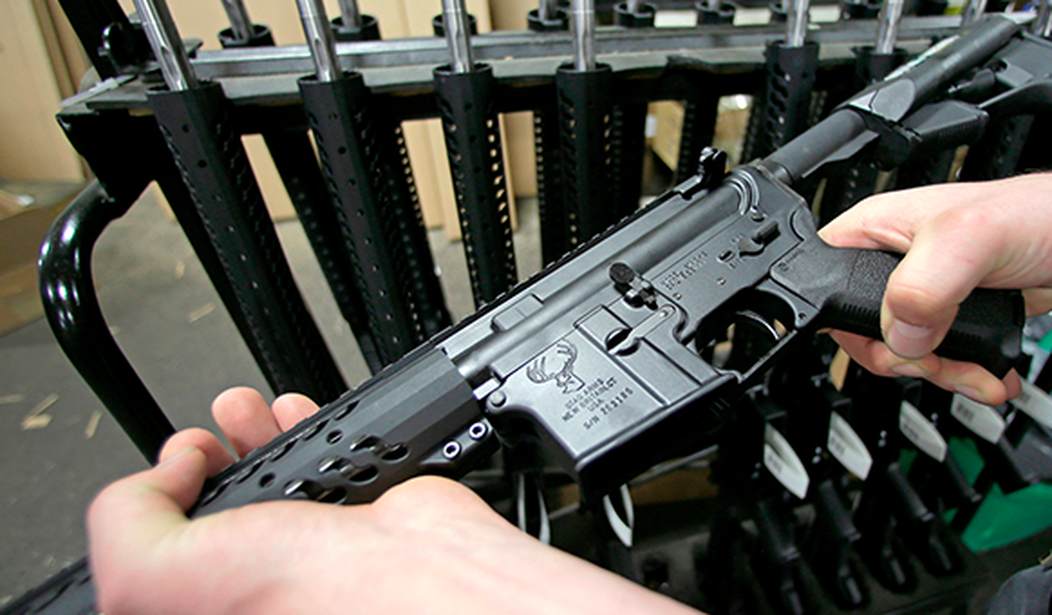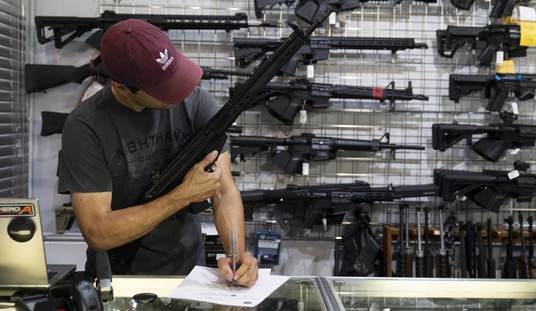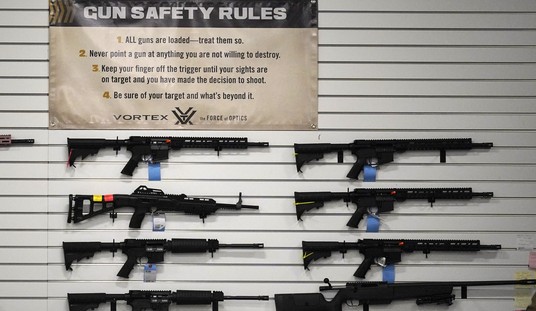The city of Buffalo has filed a lawsuit against a number of gun companies. These are companies they blame for that city’s mass shooting earlier this year. They’re seeking to try and punish these companies, despite everyone knowing that the companies had nothing to do with what happened.
A local news organization, Buffalo News, supports the lawsuit in a new editorial. However, there are some points worth discussing.
Are they serious strategies or merely mirages – stagecraft meant to give the illusion of acting on gun violence? Western New Yorkers can hope it’s the former but, either way, Buffalo and Rochester have both filed lawsuits against gun manufacturers, alleging a slew of failures that they say contribute to violence in the cities.
But even if the plaintiff cities harbor serious hopes of forcing a change in the national patterns of gun violence, it’s hard not to think the lawsuits are a long shot. The federal government has conferred unwarranted protection on the gun industry and, like Big Tobacco, it has deep pockets. The smart money would be on the defendants to prevail.
The idea of the gun company prevailing is probably the right one. Comparing them to Big Tobacco, though, is sneaky. The tobacco industry willfully withheld data showing that their product was killing their own customers. They hid it because they knew smokers would stop smoking if they knew.
The gun industry is doing no such thing, but a lot of people are trying to make that connection because it’s very convenient.
Moving on…
And, yet, there are glimmers of hope. For starters, the families of the victims of the 2012 Sandy Hook murders sued Remington – the manufacturer of the AR-15 used in that crime – arguing that the company’ trained its marketing on troubled people. The company settled the case for $73 million.
Except, Remington didn’t settle. Remington’s insurance company settled. That’s an important distinction, because insurance companies are all about the bottom line, not about whether or not their client did anything wrong. That bottom line may have more to do with emotion than facts, however, which is likely why they settled.
Remington is among the defendants named in the Buffalo and Rochester lawsuits. Others include Smith & Wesson, Beretta, Bushmaster, Glock, Hi-Point, Savage and Taurus. The actions claim that the companies:
Dig in, this is about to get good.
• Fail to track injuries, deaths and crimes associated with their products.
Why should they? If these were the result of product failings or something of that sort, then maybe you’d have a point. Yet what these folks want is for firearm manufacturers to track data associated to the criminal misuse of lawfully made and sold products.
Do we tell knife manufacturers they need to track the number of people stabbed with their products? No, we don’t. The reason we don’t is that everyone knows that a knife wasn’t built to be used in a criminal act. Niether is a firearm.
• Market their guns to emphasize their high capacity and ease of concealment, making them more appealing for criminal use.
Uh…they do know that the reason they emphasize those things is because it makes them more appealing to law-abiding citizens who want a gun for concealed carry, right?
Frankly, there’s no evidence criminals follow the marketing of gun companies in the first place. They tend to obtain guns based on opportunity more than discerning selection. They get what they can get and they’re not beholden to particular models, brands, or what have you.
Law-abiding gun owners, however, are different. Many of us do follow the marketing and we shop around first.
What this bit basically does is make it more difficult for us to discern which guns might meet our needs the best, all while criminals will just get whatever they can lay their hands on.
• Purposely flood the market, thereby inducing sales in secondary, illegal markets.
You mean purposely making products they believe law-abiding consumers will purchase?
Seriously, the most charitable reading of this I can give it is that they want to criminalize gun manufacturers who overestimate demand for a given product.
And I really don’t think that’s what this is about. Instead, it’s about punishing gun makers for simply doing business and providing a product that people want.
• Fail to terminate contracts with distributors who sell to dealers with disproportionately high numbers of guns traced to crime scenes.
Why should they? If they’re doing something wrong, it’s on the ATF to investigate and revoke their FFL. If not, then why should these companies do anything?
More than that, how are they to know why these guns are being traced? I mean, yeah, tracing has to go through them, but they rarely know the full story. Were these firearms stolen from lawful gun owners? Probably. So why should the gun stores in question be punished because of something beyond them?
Here’s the thing about these points, though. I can see how someone would think all of these are perfectly valid. They don’t understand the subject well enough to know just how any of this works. So, they announce things they think gun companies should do, all while oblivious to the realities around their demands.
It’s kind of pathetic.
And yet, people take these editorials and think the boards writing them actually understand what they’re prattling on about. They don’t.
The Buffalo lawsuit shouldn’t go anywhere because none of these points are based on reality, unless the reality we’re talking about is nothing but an effort to drive them all out of business.







Join the conversation as a VIP Member